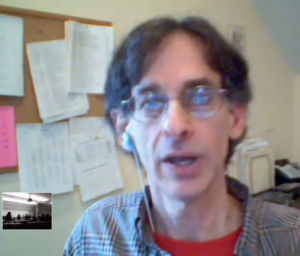Truth-Out December 17, 2012. The tragic deaths of 26 people shot and killed at Sandy Hook Elementary School in Newtown, Conn., included 20 young children and six educators. Many more children might have been killed or injured had it not been for the brave and decisive actions of the teachers in the school. The mainstream media was quick to call them heroes, and there is little doubt that what they did under horrific circumstances reveals not only how important educators are in shielding children from imminent threat, but also how demanding their roles have become in preparing them to negotiate a world that is becoming more precarious, more dangerous – and infinitely more divisive. Teachers are one of the most important resources a nation has for providing the skills, values and knowledge that prepare young people for productive citizenship – but more than this, to give sanctuary to their dreams and aspirations for a future of hope, dignity and justice. It is indeed ironic, in the unfolding nightmare in Newtown, that only in the midst of such a shocking tragedy are teachers celebrated in ways that justly acknowledge – albeit briefly and inadequately – the vital role they play every day in both protecting and educating our children. What is repressed in these jarring historical moments is that teachers have been under vicious and sustained attack by right-wing conservatives, religious fundamentalists, and centrist democrats since the beginning of the 1980s. Depicted as the new “welfare queens,” their labor and their care has been instrumentalized and infantilized; [1] they have been fired en masse under calls for austerity; they have seen rollbacks in their pensions, and have been derided because they teach in so-called “government schools.” Public school teachers too readily and far too pervasively have been relegated to zones of humiliation and denigration. The importance of what teachers actually do, the crucial and highly differentiated nature of the work they perform and their value as guardians, role models and trustees only appears in the midst of such a tragic event. If the United States is to prevent its slide into a deeply violent and anti-democratic state, it will, among other things, be required fundamentally to rethink not merely the relationship between education and democracy, but also the very nature of teaching, the role of teachers as engaged citizens and public intellectuals and the relationship between teaching and social responsibility. This essay makes one small contribution to that effort.
The War Against Public School Teachers
Right-wing fundamentalists and corporate ideologues are not just waging a war against the rights of unions, workers, students, women, the disabled, low-income groups and poor minorities, but also against those public spheres that provide a vocabulary for connecting values, desires, identities, social relations and institutions to the discourse of social responsibility, ethics, and democracy, if not thinking itself. Neoliberalism, or unbridled free-market fundamentalism, employs modes of governance, discipline and regulation that are totalizing in their insistence that all aspects of social life be determined, shaped and weighted through market-driven measures.[2] Neoliberalism is not merely an economic doctrine that prioritizes buying and selling, makes the supermarket and mall the temples of public life and defines the obligations of citizenship in strictly consumerist terms. It is also a mode of pedagogy and set of social arrangements that uses education to win consent, produce consumer-based notions of agency and militarize reason in the service of war, profits, power and violence while simultaneously instrumentalizing all forms of knowledge.
The increasing militarization of reason and growing expansion of forms of militarized discipline are most visible in policies currently promoted by wealthy conservative foundations such as the Heritage Foundation and the American Enterprise Institute along with the high-profile presence and advocacy of corporate reform spokespersons such as Joel Klein and Michelle Rhee and billionaire financers such as Michael Milken.[3] As Ken Saltman, Diane Ravitch, Alex Means and others have pointed out, wealthy billionaires such as Bill Gates are financing educational reforms that promote privatization, de-professionalization, online classes, and high-stakes testing, while at the same time impugning the character and autonomy of teachers and the unions that support them.[4] Consequently, public school teachers have become the new class of government-dependent moochers and the disparaged culture of Wall Street has emerged as the only model or resource from which to develop theories of educational leadership and reform.[5] The same people who gave us the economic recession of 2008, lost billions in corrupt trading practices, and sold fraudulent mortgages to millions of homeowners have ironically become sources of wisdom and insight regarding how young people should be educated.
Read More: Truth-Out: Henry A. Giroux | The War Against Teachers as Public Intellectuals in Dark Times

 Follow
Follow
